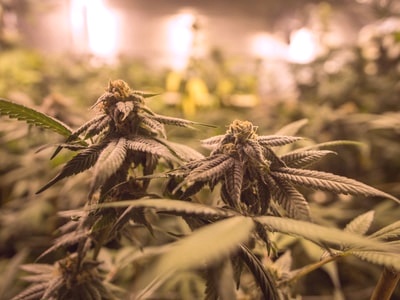By Tracy A. Gallegos & Neville M. Bilimoria
In recent years, there has been a lot of discussion regarding federal legalization of cannabis. Many cannabis operators had previously favored state legislation legalizing medicinal and adult recreational use of cannabis, as such state laws favored some of the largest cannabis companies and small entrepreneurs, allowing their operations to be extended to several states and providing additional platforms for the use and sale of cannabis in different states. Now, with the MORE Act (Marijuana Opportunity Reinvestment and Expungement Act of 2019 – H.R. 3884) passing the House of Representatives on December 4, 2020, a new presidential administration in place and the Democratic Party regaining control of the Senate, federal legalization of cannabis may happen sooner than some proponents expected.
Essentially, if passed as currently written, the MORE Act would legalize cannabis at the federal level by removing it from the Controlled Substances Act (“CSA”) and by expunging criminal records for certain cannabis-related convictions. In addition, the MORE Act would, among other things, impose a tax on cannabis products and make small business administration loans and services available to legal cannabis businesses and businesses that provide ancillary products and services to the cannabis industry.
The MORE Act reflects the federal government and American society’s evolving views about the cannabis space. But, like everything else in life, there are two sides to this story.
On the one hand, for years health care experts have been speaking about how ludicrous it is for cannabis to be a Schedule I controlled substance under the CSA, on par with heroin, and with “no currently accepted medical use,” when state legislatures and peer-reviewed studies have shown that cannabis can be quite medically therapeutic, a view now espoused by many in the medical community. However, removing cannabis from Schedule I of the CSA would mean that it could be treated as any other physician-prescribed drug. This means two things: (1) patients could now potentially avoid the plethora of various state medical cannabis laws and regulations and simply ask their doctor for a prescription; and (2) there could be a corresponding decrease, and ultimately the elimination of, state medical cannabis dispensaries in favor of local pharmacies potentially carrying cannabis as just another prescription drug on their shelves. After all, the illegality of cannabis at the federal level was the reason why states adopted complex medical cannabis dispensary laws: because doctors and pharmacies were prohibited from prescribing and dispensing cannabis, respectively. If the MORE Act or its equivalent is passed, then doctors can prescribe cannabis, arguably removing the need for medical cannabis patient registration laws.
Moreover, pharmacies would now dispense cannabis, which could eliminate the need for medical cannabis dispensary laws and attendant dispensary licenses in each state. Furthermore, drug companies could manufacture cannabis products, which could have a negative impact on cultivation or manufacturing facilities and regulations at the state level for such facilities. Lastly, once cannabis is federally legal, there would be little to no need for licenses that permit the delivery or distribution of cannabis. Conceivably, the only state-regulated license that could survive would be those issued to labs or testing facilities.
The foregoing scenarios could have a devastating impact on the current medical cannabis industry. In fact, some operators of medical dispensaries have already expressed trepidation over the possibility of federal legalization of cannabis. Essentially, federal legalization could mean the end of the medical cannabis industry, as the state regulatory schemes developed over the last several years that promoted medical cannabis use also protected the market share of businesses in the industry. If those state medical cannabis laws are thwarted by the MORE Act or equivalent federal legislation, while perhaps gaining the correct designation by removing cannabis from Schedule I, such legislation could drastically affect the marketplace negatively for those that have gained market share by holding various licenses for medical cannabis business in several states.
On the other hand, some operators view federal legalization as a potential avenue for significantly increasing market share, as legalization would more than likely permit transportation of cannabis across state lines. This could perhaps allow cannabis operators, specifically retailers, manufacturers and cultivators, to sell their products in different states without having to obtain licenses or comply with the regulatory schemes of such states. Since cannabis currently cannot be transported across state lines, there are only two ways that a cannabis operator licensed in one jurisdiction could sell its products or promote its brand in another jurisdiction: either obtain a license in the second jurisdiction or, depending on the second jurisdiction’s cannabis regulatory scheme, enter into a white-labeling agreement with an operator licensed in that jurisdiction in order to establish its brand in that jurisdiction. Federal legalization could open up the door for a major increase in brand expansion to other states without the headache and cost of obtaining a license and complying with regulations of another jurisdiction.
The ability to expand into other states could be beneficial for many operators known as “legacy operators,” or those who previously operated in the medical cannabis space only and have been unable to continue operating in the medical space or unable to transition to the adult-use space. Such legacy operators have, in some situations, been unable to continue in the medical space or transition to the adult-use space simply because the costs of licensing and ongoing state regulatory compliance are too high. This has resulted in legacy operators entering into white-labeling agreements as discussed above. If cannabis is legalized federally, unlicensed legacy operators could potentially have a larger pool of licensed operators with which to enter into white-labeling agreements.
Perhaps most importantly for licensed operators, federal legalization could have a huge impact on the black market. In bigger states such as California, the cannabis black market has continued to thrive, thereby affecting the revenues of licensed operators. One of the many reasons why the black market has continued to flourish is the pricing of cannabis and cannabis products. Cannabis and cannabis products purchased from licensed retailers are more expensive – sometimes significantly – than products purchased on the black market because black market products are not subject to excise, sales and other taxes imposed on licensed retailers. Arguably, federal legalization could drive costs down since there will be more competitors in the space who are able to sell or prescribe cannabis or cannabis products.
If the MORE Act or equivalent is slated to be passed in 2021 or 2022, the medical cannabis industry should look to state legislative initiatives to protect the current regulatory scheme already in place, and seek legislation in each state to protect the existing market share and licensure structures gained by medical cannabis companies over the years, often at great expense and loss as leaders in the space.
About the Author(s)
Neville M. Bilimoria is a partner with Duane Morris LLP’s Health Law Practice Group and the Cannabis Law Group. Neville advises health care clients on corporate and litigation matters and counsels hospitals, health systems, nursing homes, assisted living facilities, physicians, physician groups, pharmacies and pharmaceutical companies on a variety of issues. He can be reached at NMBilimoria@duanemorris.com
The post Implications of the MORE Act and Possible Federal Legalization of Cannabis appeared first on Cannabis Business Executive – Cannabis and Marijuana industry news.







